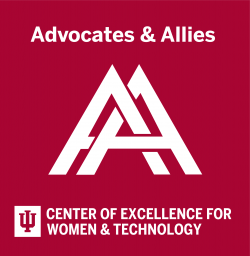Our language fundamentally shapes how we view the world, particularly when it comes to power and privilege. This week, we discuss the relationship between language and our cultural views, the different ways language can be exclusionary, and key steps to removing harmful language from your repertoire.

Reflect: How Does Language Shape Your World?
Language – accents, terminology, tone, etc. – is passed down for generations, evolving as our world and culture changes. Differences in language can be as fundamental as reflecting differences in perceptions of time and space,1 to generational difference in how we describe something that is good/we like (e.g., “groovy” vs. “cool”). Our language also reflects the nature of our society and is never neutral to the conditions of our world; this means that power, privilege, and oppression creep in without us even knowing. While we are not at fault for how we are socialized, we are responsible for understanding the influence of our cultural lens on our language. What kind of language did/do you have access to in your personal life? Was that language shaped by your identities? Was it shaped by the identities of people around you? How did the language you had access to influence the language you use now?
Learn: Where Do We See Exclusionary Language?
Exclusionary language appears all over the place. Commonplace slang can have problematic history, such as “no can do” which originally mocked Chinese immigrants.2 Other language can be harder to identify. Take the term “ladies.” When do a group of women most often get called “ladies”? While seemingly innocuous, a man calling a group of women “ladies” can be patronizing and condescending3; this is especially true when we hear phrases like “lady doctor” when a man would simply be called “a doctor.” Academic fields often have their own problematic terms, operating either as difficult-to-understand jargon4 or evoking derogatory imagery/stereotypes. In IT, terms like “whitelist/blacklist” or “master/slave” describe technical functions but do so by using language embedded in racist history.6, 7 Language also becomes exclusionary when we don’t respect how people want to be referred. Having your name repeatedly mispronounced, being deadnamed, and the use of incorrect pronouns can be damaging to one’s sense of belonging and mental health,8, 9, 10 as well as stifling one’s career.11, 12 While language is often experienced on a personal level, the greater societal conversation about exclusionary language affects important things such as policies13 and rights.14.
Change:
- Do a language inventory: Because we are often not taught to think critically about the language we use, one of the first ways we can deconstruct exclusionary language is to take an inventory of our language and reflect on the meanings behind our words. During a given day or week, consider the language you and others use, as well as language used in the media you consume. What kind of messages are you conveying, explicitly and implicitly? What kinds of images do you invoke to convey this message? If you spoke like this in the presence of other groups, how might they feel? If you are unsure about the origins of a word, phrase or idiom, look it up.
- Person- vs. identity-first language: Understanding the difference between person-first and identity-first language is a critical step toward being more inclusive. For instance, “autistic child” differs from “child with autism,” as does “addict” versus “recovering from a substance use disorder.” Person- vs. Identity-first language preferences differ between communities and even between individuals in a community. For example, part of the disabled community questions person-first language as a move by able-bodied people to distance and further erase the reality of living in an ableist world.15 When you don’t know how to refer to someone, first spend time listening to how they describe themselves, particularly around those with your identities.
- Be a Language Role Model: When we work/learn in spaces where our identities (particularly our privileged identities) are dominant, we must model being a good ally. Make the effort to ask for and correctly pronounce someone’s name/pronouns. Point out exclusionary language you hear from others, challenging them to see the potential harm in their real meaning. You don’t need to be confrontational – help them unpack their language. Role-modeling also means showing people how to handle inevitable mistakes. For example, if you accidentally mispronounce someone’s name or use the wrong pronoun, don’t make the moment about you.16 Correct yourself, apologize, and move on, reflecting afterward about what happened and why. Doing this can help you avoid hurting others and show others how to move through mistakes, too.
Additional Resource Recommendations
- Book: Language and Social Justice in Practice – This edited volume explores various kinds of exclusionary language and how we can change our thinking on language to be more inclusive.
- Video: Why Inclusive Language is So Important! - Kelly Kitagawa explores the evolution of words and what that means for us to become more inclusive of others.
- Article: Equity, Diversity, and Inclusion: A Call to Eradicate Non-Inclusive Terms from the Life Sciences – Dr. Khan details the exclusionary language present in the life sciences and encourages other academics to seek out new ways to describe their work.
- Podcast: Splunk on Removing Exclusionary Language from its IT Systems (The New Stack: Context) – This episode looks at the way the Splunk team came together to remove exclusionary language from its organization and recommendations for how to avoid it in the future.
Get these tips delivered to your mailbox!
We send these tips every Tuesday during the fall & spring semesters to our mailing list. If you are not already on our mailing list you can request to be added by completing the form below.

